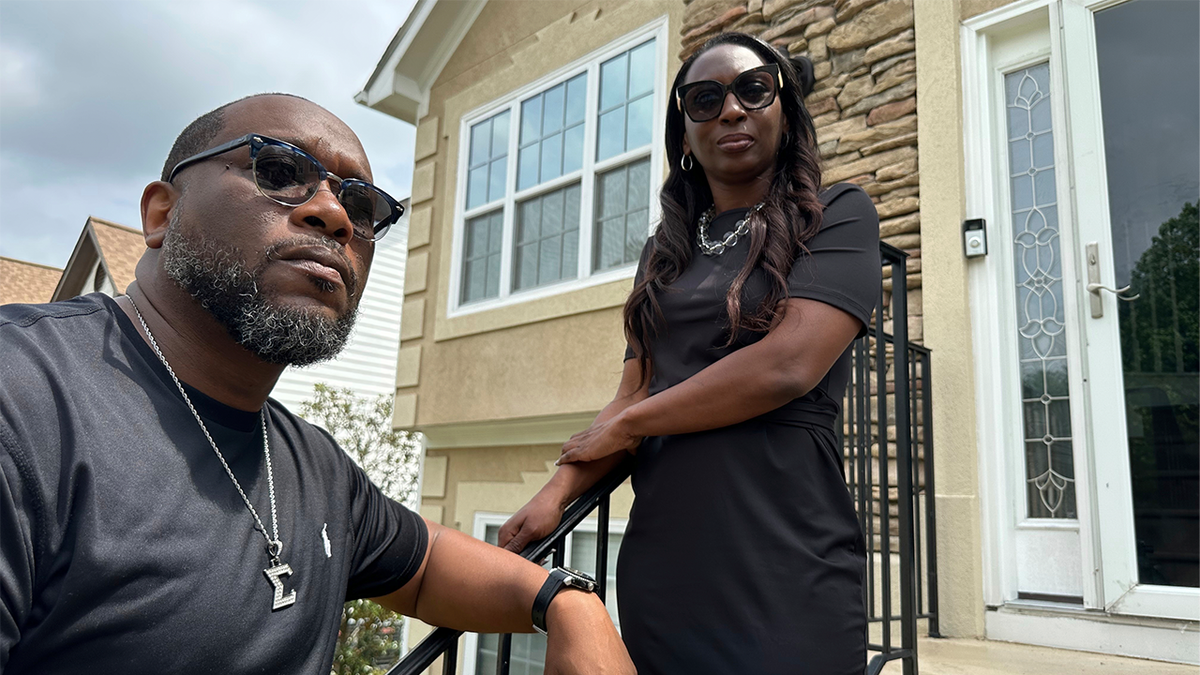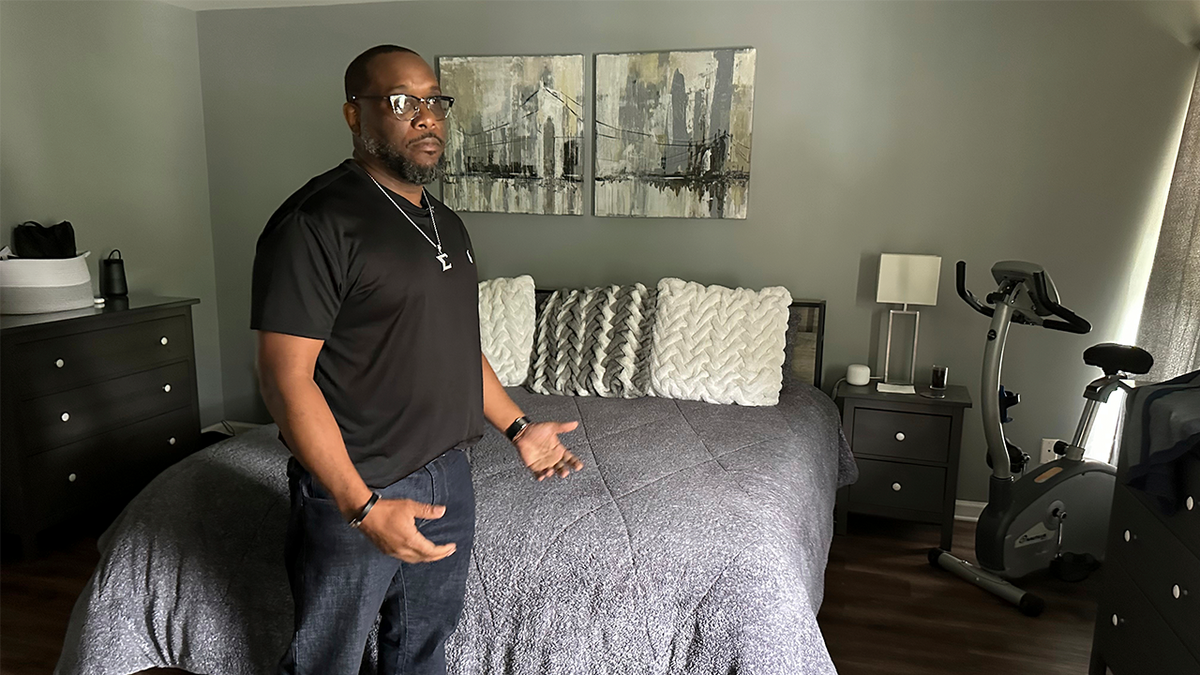The U.S. Supreme Court is prepared to hear a case involving a woman’s lawsuit against the U.S. government due to an erroneous raid by FBI agents on her home in Atlanta, Georgia.
On October 18, 2017, FBI agents forcefully entered Trina Martin’s home before dawn, waving guns at her and her then-boyfriend, while her 7-year-old son cried out for her from another room.
Martin, 46, too was unable to reach her child for what she described as a long time until the agents discovered they had entered the wrong house while searching for a suspected gang member.
On Tuesday, Martin’s attorney will appeal to the Supreme Court to revive her 2019 lawsuit against the government, claiming the agents committed assault and battery, false arrest, and other violations.
BEFORE SIGNIFICANT SUPREME COURT ARGUMENTS, HERE ARE THE STATES THAT HAVE ENACTED SCHOOL CHOICE LAWS

Toi Cliatt and Trina Martin outside the home incorrectly raided by the FBI in 2017, in Atlanta on April 25, 2025. (AP)
A federal court in Atlanta dismissed Martin’s case in 2022, and the 11th U.S. Circuit Court of Appeals affirmed that decision last year.
The Supreme Court will examine the circumstances under which the federal government can be held accountable in lawsuits against law enforcement agencies.
Martin’s legal team asserted that Congress permitted such lawsuits in 1974 following incidents of erroneous raids, indicating that preventing these lawsuits would leave victims like her with no remedy.
According to FBI Atlanta spokesperson Tony Thomas, the agency cannot comment on ongoing legal matters.
Government lawyers argued in Martin’s case that courts should not second-guess law enforcement decisions. They pointed out that the agents made an effort to locate the correct residence, which distinguished this case from the no-knock, warrantless raids that led to legislative action in the 1970s, as noted in Justice Department court filings under the Biden administration.
The 11th Circuit largely concurred with this viewpoint, stating that courts should not question police officers who make “honest mistakes” during searches, with the agent in charge claiming that his GPS directed him to the wrong location — the target was only a few houses away.
Martin, her then-boyfriend Toi Cliatt, and her son were left traumatized, she recounted.
“We’ll never be the same, mentally, emotionally, psychologically,” she told the Associated Press at her previously raided home. “You can try to suppress it, but you can’t truly move on.”
Martin and Cliatt, 54, showed the area where they were sleeping when agents broke in, as well as the master bathroom closet where they sought refuge.

Toi Cliatt discusses the raid from the bedroom where he and then-girlfriend Trina Martin were sleeping when the FBI forcibly entered their home, on April 25, 2025, in Atlanta. (AP)
Martin ceased coaching track because the sound of a starting pistol triggered memories of the flashbang grenade used during the raid. Cliatt had to leave his truck-driving job as he found himself unable to get a good night’s sleep.
“The road is hypnotizing,” he mentioned. “I became a liability to my employer.”
Martin reported that her son developed severe anxiety, even resorting to pulling threads from his clothes and peeling paint from the walls.
Initially, Cliatt thought the raid was a burglary and hurried to the closet where he kept a shotgun. Martin explained her son still fears that she could have been harmed if she had confronted the agents with a weapon.
“If the Federal Tort Claims Act allows for any kind of legal action, it should cover a case like this one involving an erroneous raid by the FBI,” Martin’s lawyers wrote in a brief submitted to the Supreme Court.
Other appeals courts in the U.S. have interpreted the law in a manner that is more beneficial to victims of incorrect raids, resulting in conflicting legal standards that only the Supreme Court can resolve, according to the lawyers.
After the agents forced their way into Martin’s home, a member of the FBI’s SWAT team pulled Cliatt from the closet and handcuffed him.
However, one of the agents noticed that Cliatt did not have the same tattoos as the suspect, and after asking for Cliatt’s name and address, they found that neither matched the suspect’s details.
Once the agents realized their mistake, the room fell silent.
ATLANTA APPROVES $1.4M SETTLEMENT FOR FAMILY OF MAN KILLED BY OFFICER ACQUITTED IN 2019 SHOOTING

The Atlanta home where Trina Martin, her then-boyfriend Toi Cliatt, and her 7-year-old son lived when the FBI broke in is shown on April 25, 2025. (AP)
Cliatt was eventually uncuffed, and the agents proceeded to the correct address, where they apprehended the individual they were actually looking for.
The agent in charge of the raid later returned to Martin’s home to apologize and left a business card with a supcon’s name. Cliatt mentioned that the family did not receive any compensation from the government, even for the damage caused during the raid.
Martin remarked that the most distressing aspect of the raid was her son’s crying.
“When you’re unable to protect your child or at least fight to safeguard them, it’s an indescribable feeling for any parent,” she expressed.
This report was contributed by the Associated Press.


